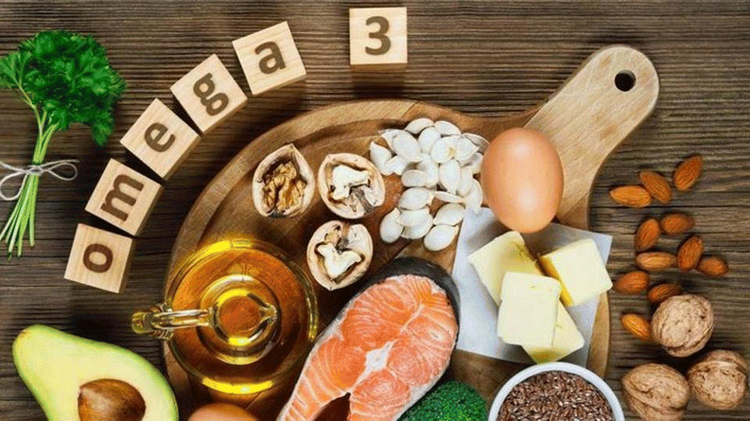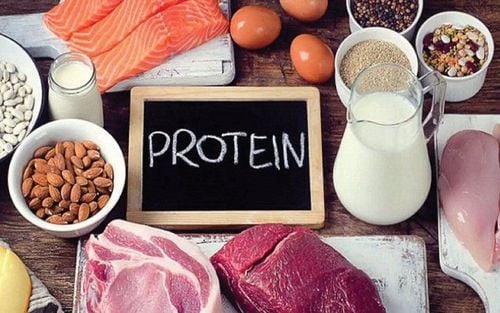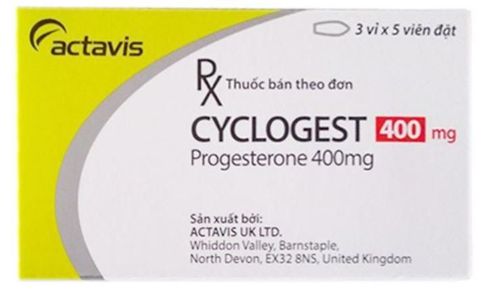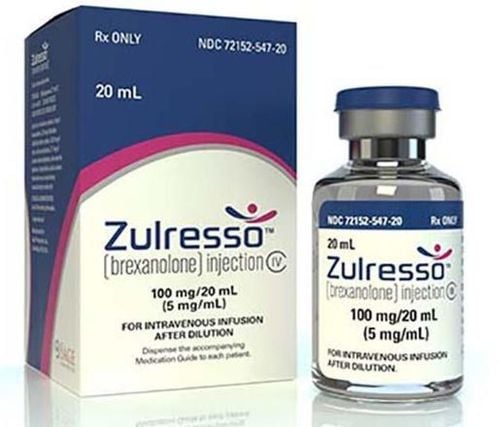This is an automatically translated article.
The article was professionally consulted by Specialist Doctor II Lai Thi Nguyet Hang - Department of Obstetrics and Gynecology - Vinmec Ha Long International Hospital.The first few weeks after giving birth, the mother must gradually recover physically, change hormones and adjust to life. All of this can leave you feeling exhausted, irritable, and anxious and frustrated. Choosing to eat foods that are good for new mothers is a simple way to increase energy and improve mood.
1. Stock up on omega-3 fatty acids
Experts agree that omega-3 fatty acids, found mainly in fish and some nuts, are important to a healthy diet. They help your body function properly and protect against heart disease. Some studies show that countries that regularly eat fatty fish have lower rates of depression, including postpartum depression, in women.Pediatricians recommend that new mothers stock up on foods rich in omega-3 fatty acids, like salmon, flaxseed oil, and walnuts. This is a good food for new mothers, has the ability to boost brain function and reduce depression. According to doctors, Omega-3 oils actually help the brain function better.
The Institute of Medicine recommends that women consume 1.1 grams (1,100 mg) of omega-3 fatty acids per day. Breastfeeding women should consume a little more, about 1.3 grams/day. Some foods that provide specific levels of omega-3 fatty acids are as follows:
1 tablespoon walnut oil = 1.4 grams omega-3 fatty acids 28 grams black walnuts = 0.6 grams 1 tablespoon canola oil = 1.3 grams 1 tablespoon flaxseed = 1.6 grams 42 grams herring = 1 gram 70 grams Ocean salmon = 1 gram 113 grams canned white tuna = 1 gram

Consider taking a supplement if you don't like the taste of fish or eat less fish because of concerns about mercury content. According to the US Food and Drug Administration's general guidelines, nursing mothers should eat 226-340 grams of cooked fish or canned tuna per week.
Omega-3 supplements made from fish oil are considered safe for breastfeeding women. According to the Medical Center, no levels of mercury or toxins have been detected in this medication. However, breastfeeding should not take cod liver oil because it contains too much vitamins A and D.
If you are taking a supplement, read the information on the label to determine the amount of omega fatty acids- 3 in each tablet, and ask your doctor to prescribe the right dose for you. The dose should be started low and gradually increased, as well as taken with meals, to reduce the risk of side effects such as diarrhea, bloating, and nausea.
2. Richly supplemented with protein
According to experts, getting enough protein in the diet of women with postpartum depression is especially important. Just eating a small amount of protein throughout the day will help control blood sugar and keep your mood stable. At the same time, consuming dairy products, meat, and fish, along with low-glycemic carbs (like nuts, whole grains, and beans) helps promote serotonin production, the neurotransmitter. It has a calming effect on the brain.For more protein in your diet, try this menu:
Breakfast: Scrambled eggs Lunch: Turkey or roast beef sandwich Snack: Yogurt or cheese and crackers.

Lactating mothers: 50 - 85 grams of protein per day Women who breastfeed their babies Diet: 30 - 55 grams/day If you are very thin or heavier than average, your protein needs may fall outside of the above suggestions. You can ask your dietitian to suggest how much protein you need each day.
Some good sources of protein include:
85 grams of chicken, turkey or red meat = 20 - 25 grams of protein 85 grams of fish = about 20 grams Two glasses of milk 236ml = 16 grams Two glasses of soy milk 236ml = 14 grams Two large egg = 12 grams 56 grams swiss cheese = 16 grams Half a tofu cover = 14 grams 1 cup cheese = 22 - 31 grams 1 cup low-fat yogurt = 12 grams 56 grams dry roasted peanuts = 14 grams 1 cup cooked beans (chickpeas, kidney beans or black beans) = 12 - 19 grams 1 cup cooked lentils = 18 grams
Recommended video:
3. Drink lots of water
Dehydration can make your mood worse. Fatigue and anxiety are among the mild symptoms of dehydration. So drink at least 9 236ml glasses of water a day, and about 13 glasses if you're breastfeeding. Water or liquid dishes that do not contain caffeine and sugar are cool foods for postpartum mothers to choose to use.Also, don't wait until you feel thirsty to rehydrate. By the time you feel thirsty, mild dehydration may have already occurred. This is especially important if you're breastfeeding, because caring for a baby can make you extra thirsty. Bring a large glass of water, juice or even iced tea every time you sit down to nurse and feed your baby.
4. Limit alcohol intake
While it can relax you a bit, alcohol is actually a depressant. So, limit your drinking until you feel more comfortable. Drinking a glass of wine in the evening to relax is not a problem, but regular alcohol abuse can make your mood worse, disrupting sleep. Depression and alcoholism often go hand in hand. If you feel you have become addicted to alcohol, ask your doctor for guidance on how to gradually quit.There are many other reasons why alcohol is not a good food for new mothers, including affecting a woman's ability to care for and breastfeed.
5. Control the amount of caffeine

In addition, if you are breastfeeding, doctors recommend that you do not consume more than 300 mg of caffeine per day to avoid affecting the baby, equivalent to 2 236ml cups of coffee.
However, suddenly cutting out caffeine completely can cause temporary headaches, lethargy, and irritability. So aim to cut back on caffeinated drinks gradually each day.
6. Choose dark chocolate when craving sweets
You will easily be tempted by junk food when you feel tired and need to load up calories quickly. Try to resist this momentary craving. Junk food can make you feel better temporarily, but there are negative mood swings later. If you want a sweet treat with a lot of sugar, choose chocolate.High quality dark chocolate - at least 70% cocoa, can improve mood by increasing serotonin levels in the brain. Some studies show that consuming chocolate helps trigger the release of endorphins - brain chemicals that help create feelings of euphoria.
7. Don't forget to add vitamins
While supplements are no substitute for a healthy diet rich in fruits and vegetables, during the hectic first few weeks postpartum it can often be difficult to get enough of your basic nutrients. So keep taking your prenatal vitamin for a few months after giving birth.Prenatal vitamins often contain more iron than regular multivitamins. This is very important because the iron stored in your body will be depleted after pregnancy and childbirth, especially a cesarean section. Low iron levels can make you feel tired and run down. In addition, antioxidants - including vitamins A, C and E, also work to improve overall brain function.
Recommended video:
8. Pay attention to the right meal
Skipping meals and forgetting to eat on a regular schedule are common during the first weeks of newborn care. But if you rarely feel hungry and aren't eager to eat, this could be a symptom of postpartum depression.Poor eating also contributes to mood problems. The body needs regular, balanced meals and snacks to keep blood sugar levels stable. Otherwise, mood may be affected. If you feel anorexia and always struggle to eat, talk to your doctor.
A healthy diet, including foods that are good for new mothers, can help improve mood, but is not a substitute for professional treatment. If you suspect you may have postpartum depression rather than temporary sadness or fatigue, see your doctor right away. Warning signs of postpartum depression include insomnia, changes in appetite, day-long nausea or sadness, and thoughts of harming yourself or your baby.
Vinmec International General Hospital has the function of examining, consulting and treating many diseases, including health and nutrition counseling for pregnant women after giving birth. Therefore, if the mother has problems with mood, psychology, nutrition, care and child rearing, she can come to Vinmec for intensive examination and treatment.
Specialist II Lai Thi Nguyet Hang has more than 30 years of experience in the field of obstetrics and gynecology. The doctor used to teach at Hai Phong Medical College, Hai Phong Medical University and worked at Hai Phong Obstetrics and Gynecology Hospital before becoming an Obstetrician and Gynecologist, Vinmec Ha Long International Hospital
Please dial HOTLINE for more information or register for an appointment HERE. Download MyVinmec app to make appointments faster and to manage your bookings easily.
Reference source: babycenter.com
SEE ALSO:
Postpartum nutrition for nursing mothers What foods should pregnant women avoid? Diet for mothers giving birth by cesarean section according to each stage of recovery














